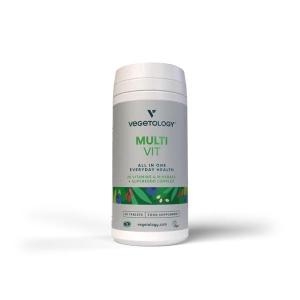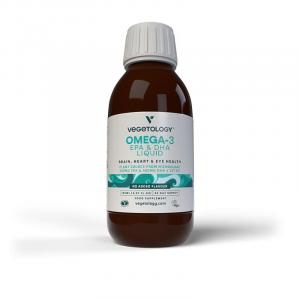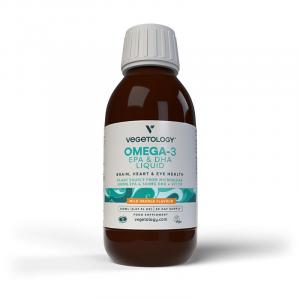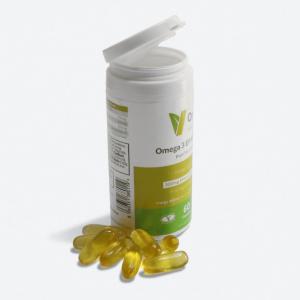
Five Key Tips to Boost Testosterone in Men Without Medication

How to Naturally Support Testosterone Levels - A Healthier Path to Male Vitality
The question, how to increase testosterone levels in men, is becoming more common – not only among athletes but also among men who want to improve their energy, concentration, performance, or overall health. Testosterone, also referred to as the "male hormone," is crucial for many bodily functions. It affects muscle mass, bone density, libido, mood, and red blood cell production. Although its natural level decreases with age, it's not necessary to immediately resort to synthetic supplements or medical interventions.
Many men ask: "How do I know if I have low testosterone?" Typical symptoms include fatigue, decreased libido, sleep problems, increased body fat, or muscle loss. However, diagnosis always belongs in the hands of a doctor. What anyone can do immediately – and safely – is focus on natural ways to support their own hormonal balance.
The Power of Sleep and Its Impact on Hormonal Health
Probably the most underestimated tool for supporting testosterone is quality sleep. A study published in the Journal of the American Medical Association showed that men who sleep less than five hours a day have up to 15% lower testosterone levels than those who sleep at least seven to eight hours. During deep sleep, the body produces the highest amount of this hormone.
Long-term lack of sleep is also associated with higher levels of cortisol, the stress hormone, which directly suppresses testosterone levels. Quality sleep is not a luxury but a necessary foundation for hormonal balance. Regular bedtime routines, reducing blue light before sleep, or herbs like lemon balm or passionflower can help.
Nutrition as a Foundation - What to Eat (and What to Avoid)
Diet has a huge impact on the hormonal system. The foundation should be a balanced, whole, and as minimally processed diet as possible. A diet rich in healthy fats, proteins, and complex carbohydrates can help not only maintain optimal weight but also support testosterone production.
When you say testosterone, most people might think of just hormones and the gym, but few realize how much diet influences its natural production – and certain foods can significantly help the body in this regard. For example, eggs, which many might eat for their proteins, are an excellent source of cholesterol, which our body needs as a basic building block for testosterone production.
Then we have leafy greens like spinach or kale – not only are they healthy in general, but they also contain magnesium, which supports better utilization of testosterone in the body, so we don't produce it unnecessarily. Add to this fatty fish – salmon or mackerel – which, in addition to anti-inflammatory omega-3 fatty acids, offer vitamin D, another beneficial factor for hormonal balance.
Try our natural products
And if you're a fan of nuts and seeds, here's another reason to spice up your diet with them – besides tasting great, they contain zinc and selenium, minerals that play an important role in the production of sex hormones. Finally, we can't forget about pomegranate – perhaps a somewhat overlooked fruit, but according to some research, it affects not only testosterone levels but also blood pressure, so including it in your diet is definitely beneficial.
On the contrary, men should avoid excessive alcohol consumption, refined sugar, and trans fats, which can disrupt hormonal function. Sugar and processed foods are often silent saboteurs of male vitality.
An interesting example is thirty-year-old Martin, who, after years of a sedentary job and stress, began suffering from fatigue and decreased libido. After adjusting his diet – cutting out sweets and replacing them with nuts, adding more vegetables, and introducing regular consumption of fermented foods – he noticed an increase in energy and improved mood within a month. Subsequent tests confirmed an increase in testosterone levels.
Exercise as a Natural Stimulant
Exercise is one of the most effective ways to naturally increase testosterone production. However, it's not just about any movement – the most beneficial is a combination of strength training and interval exercise (HIIT).
Strength training, especially with free weights, stimulates the endocrine system and supports muscle growth. Studies show that after just a few weeks of regular training, testosterone can increase by tens of percent. Interval training helps reduce body fat, which is closely linked to higher estrogen levels in men – a hormone that competes with testosterone.
But beware – excessive exercise without sufficient recovery can have the opposite effect. Overloading the body leads to stress, increases cortisol, and testosterone levels may then decrease. The key is balance between load and rest.
Stress - The Silent Killer of Hormonal Balance
In today's fast-paced world, stress is almost unavoidable. The problem arises when it becomes chronic. Long-term stress increases cortisol levels, which naturally lowers testosterone production. It can also lead to sleep disorders, overeating, fatigue, and a general loss of motivation.
The solution? Stress management techniques like meditation, breathing exercises, spending time in nature, yoga, or simply turning off the phone for an hour a day. Even short daily moments of calm can have a surprisingly strong impact on hormonal balance.
As the philosopher Epictetus said: "It's not what happens to you, but how you react to it." And conscious work with reactions to stress can be the first step to better vitality.
Natural Support: Herbs and Supplements
When it comes to the natural way to increase testosterone, many men turn to adaptogenic herbs. Among the most well-known are:
- Ashwagandha (Withania somnifera) – studies show it increases testosterone and improves sperm quality.
- Tribulus Terrestris – traditionally used to support libido and performance.
- Ginseng – known for its stimulating effects and support for mental and physical vitality.
- Maca – an Andean herb rich in nutrients, often associated with energy support and hormonal balance.
These supplements can be a useful tool, but they are not enough on their own. Their effectiveness is greatest when they complement a healthy lifestyle – not when they replace it.
Body Weight and the Impact of Obesity
Higher amounts of body fat, especially in the abdominal area, are associated with lower testosterone levels. Fat tissue produces the enzyme aromatase, which converts testosterone to estrogen. Reducing body weight and achieving a healthy BMI can positively affect male hormone levels.
Here the circle closes – healthy diet, exercise, quality sleep, and stress management not only support testosterone production but also help burn fat and maintain a healthy physique. It's not about a short-term diet but about a long-term lifestyle change.
Increasing testosterone levels is not about miracle pills or drastic interventions. It's more of a gradual path to balance, beginning with the basics – nutrition, exercise, sleep, and mental health. When the body feels safe, healthy, and balanced, it finds its way to optimal hormone production. And that's where true male strength lies – in respecting one's own body, not in reshaping it.





